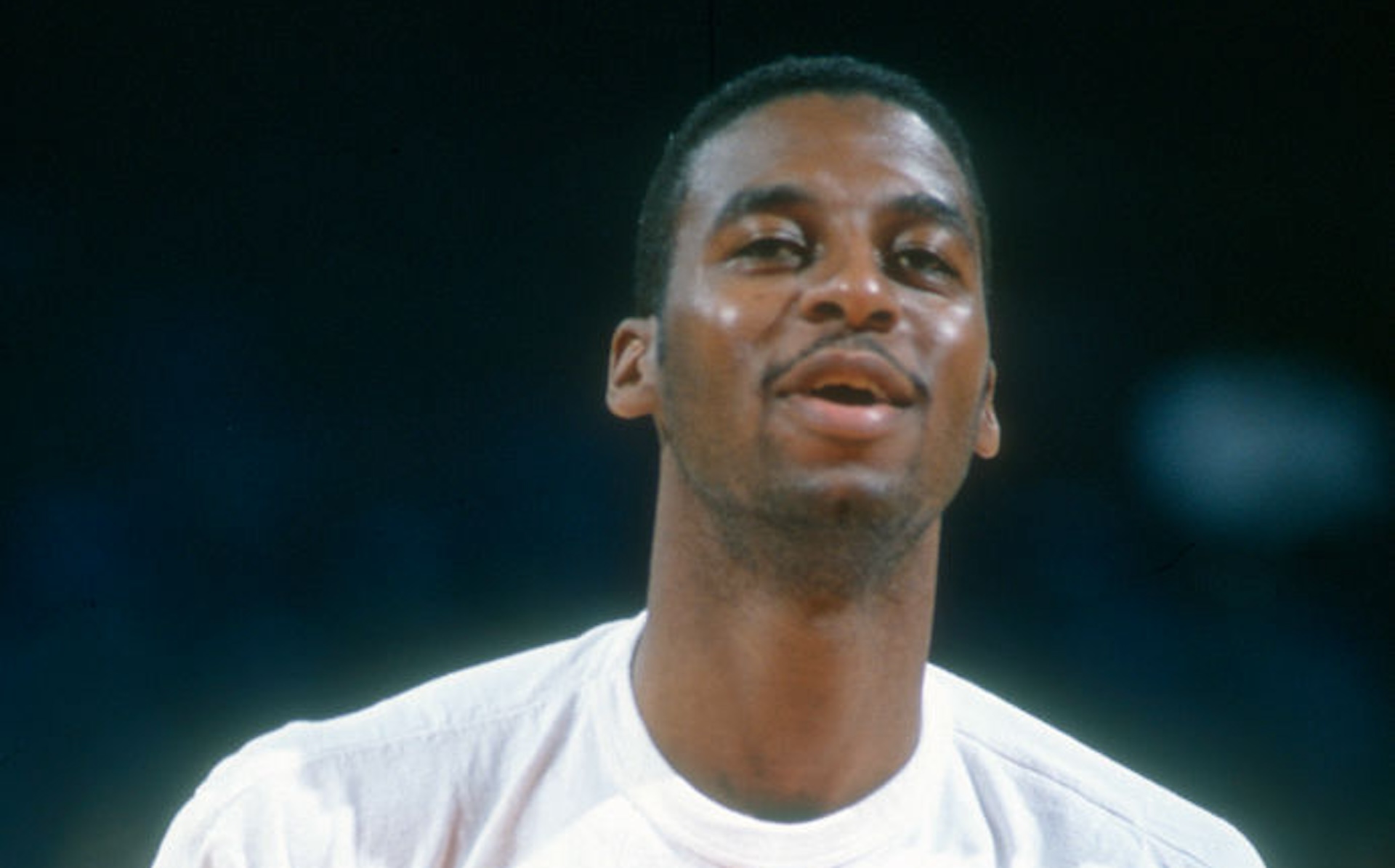I interviewed Jerrod Mustaf in 2003. At the time, he was launching a basketball minor league called the Street Basketball Association. I asked Mustaf, a former first-round pick of the New York Knicks whose own playing career ended years earlier after he was tied to an Arizona homicide, if he thought his past would hamper his chances at getting back into the game in any meaningful way.
“The jury’s still out,” he told me.
He’d spent much of our talk blaming all his professional disappointments on his reputation as a guy who got away with murder. So I wasn’t sure if his rather lighthearted use of an idiom was some sort of Freudian slip, or something more sinister. Over time, I leaned more toward the latter.
Mustaf died on Monday in North Carolina. He was 55 years old. No cause of death has yet been released.
A cause of death has been public for decades for Althea Hayes. She was a 27-year-old woman found dead on the floor of her apartment in Glendale, Ariz., in July 1993 with several bullet holes in her body, including two in her head. Hayes worked at a local bookstore owned by Mustaf, then a member of the Phoenix Suns. Authorities later said Hayes was pregnant with Mustaf’s child when she was killed. Hayes’s parents told police investigators and media that she’d told them the night before her murder that she visited Mustaf and declined his offer of $5,000 to get an abortion.
Mustaf’s cousin, LeVonnie Wooten, a 26-year-old from Landover, Md., was arrested and pegged as the guy who pulled the trigger. Wooten had been flown out to Phoenix by Mustaf for reasons that the NBA player never made clear. Mustaf did not speak much with investigators other than to say he didn’t know Hayes was pregnant. He admitted visiting her apartment with Wooten, in separate cars, on the day of the killing. But Mustaf said he had heard through friends she needed money and just wanted to help. He invoked his Fifth Amendment rights against self-incrimination when he was subpoenaed to appear before a Maricopa County, Ariz., grand jury. Prosecutors said they didn’t have enough evidence against Mustaf to bring him to trial and only indicted Wooten. According to a 1996 report in the Washington Post, during Wooten’s murder trial “both the defense and prosecution" contended that Mustaf had “arranged for the murder in frustration over Hayes's pregnancy.” Wooten was convicted and sentenced to life in prison.
Mustaf was in the news a lot as a kid. He was a fantastic player at DeMatha Catholic High School in Hyattsville, Md., becoming what legendary coach Morgan Wootten told the Washington Post was "one of only a handful of freshmen" to ever play for him, and went on to be among the top recruits in the country in the class of 1988. His father, Shaar Mustaf, used the platform provided by his son’s talents and renown to launch a righteous campaign to call attention to the almost complete lack of black coaches in college basketball. Mustaf followed through by playing for the University of Maryland, where a Baltimore high school coach, Bob Wade, had been hired as the Terps’ first black head basketball coach in the wake of Len Bias’s death. The elder Mustaf told the Washington Post he wanted Jerrod to end up “not just considered a basketball player.”
Mustaf’s time at Maryland was plagued by post-Bias turmoil and Wade’s greenness as a college coach. The school ignored Wade’s pioneering status and the all-but-unwinnable situation he’d been thrown into, following legendary and beloved Terps coach Lefty Driesell with the basketball program and entire university community still grieving Bias. Several key players transferred. Maryland forced Wade to resign after just three seasons in College Park. Mustaf left school with two years of eligibility and was taken with the 17th pick in the 1990 NBA draft. As a pro, Mustaf never lived up to the promise he showed as a prospect. After a rookie season in New York in which he averaged 4.3 points and 2.7 rebounds per game, Mustaf was sent to the Suns alongside Trent Tucker and two second-round draft picks for Xavier McDaniel. Mustaf fared no better as a player out west.
In September 1994, with Mustaf being implicated in the Hayes murder, the Suns bought out the two remaining years on his contract and cut him. When no other NBA team touched him, Mustaf fled to Europe and played for several seasons with teams, including Strasbourg in the French league and FC Barcelona in Spain, while looking stateside for another chance. The Charlotte Hornets and Seattle Sonics signed Mustaf at various points during his overseas journeys, but both teams cut him without ever suiting him up. Neither Charlotte nor Seattle publicly gave a rationale for the quickie sign-and-cuts. But the Seattle Times reported higher-ups within the Sonics organization had decided Mustaf’s skills weren’t worth the heat they were getting for signing a guy still “suspected of masterminding an alleged murder-for-hire scheme.” Mustaf never got back to the NBA.
He came back to the D.C. area around the turn of the century and ran youth basketball businesses. He was given assorted commendations by local governments and organizations. A 2017 nod from the Washington Wizards inspired Sports Illustrated to write a story with the headline "Jerrod Mustaf Is a Community Hero. Has Anyone Ever Googled Him?"
After hearing he’d died, I called DeMatha to ask if he is in the school’s athletic Hall of Fame. He is not. A school official said the non-induction came down to “morals,” and referenced Mustaf’s history of domestic violence arrests, paternity and child support civil suits, and, well, his reputation as a guy who got away with murder. In the end, as his father wished for him as a kid, Mustaf was not considered just a basketball player.





